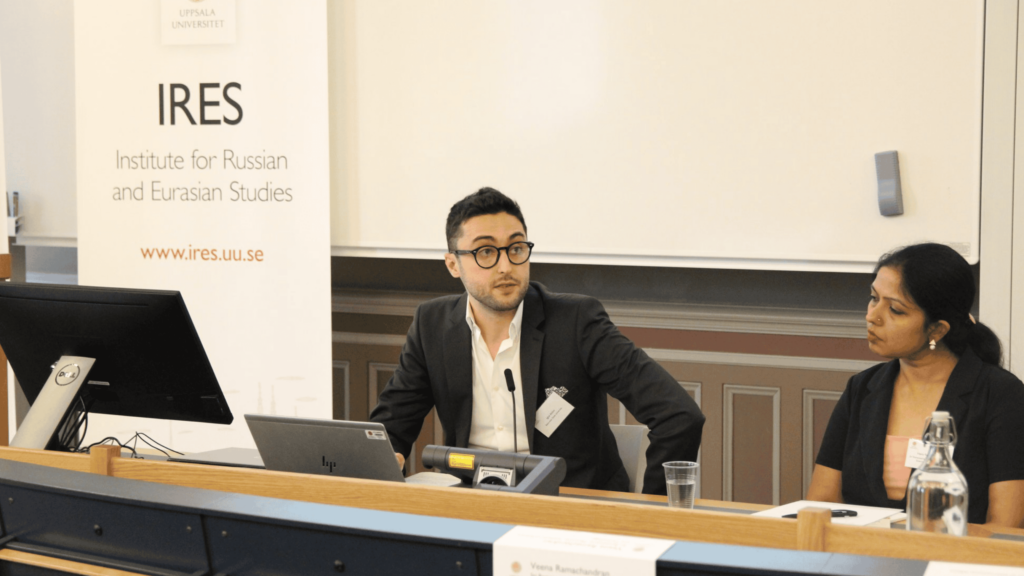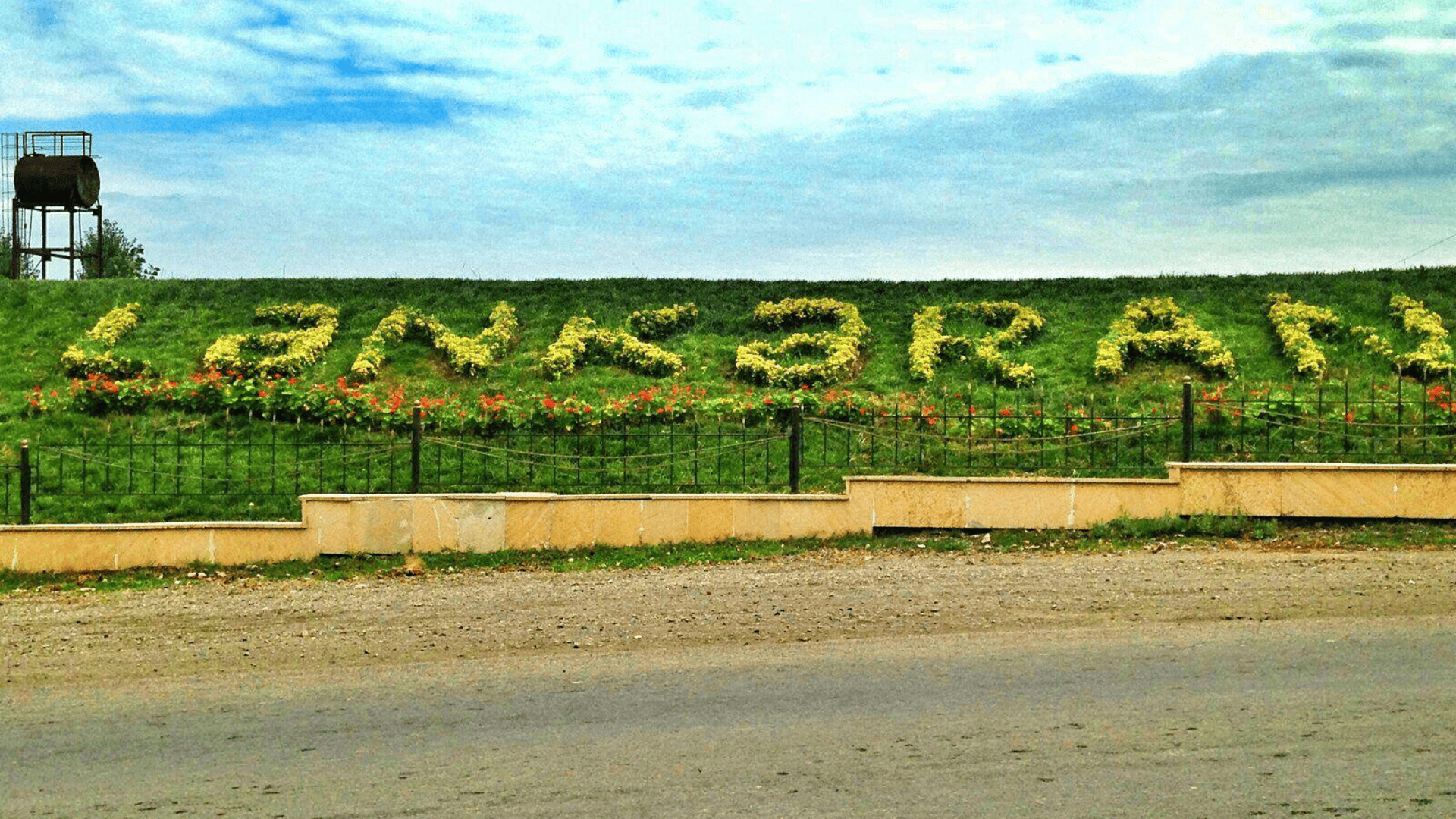Letter from jailed Talysh researcher Igbal Abilov: 'Talysh language has been cornered'
Igbal Abilov, an ethnographer and editor-in-chief of the Bulletin of the Talysh National Academy, who was sentenced to 18 years in prison on charges of treason, has spoken out against pressure on the Talysh language in Azerbaijan in a letter from the Umbaky penitentiary complex near Baku.
He writes that “to destroy a language, it is enough to erase it from public life and isolate it from society.” Abilov notes that in Azerbaijan, “the Talysh language has been cornered between four walls,” adding that he is not allowed to speak his native language during court hearings.

What does the letter say?
What must be done for a language to disappear and exist only in history? It is enough to erase it from all public spheres, confine it within four walls — and even within those walls, drive it into a corner. Today, the situation of the Talysh language in the country is exactly that.
To protest against this, during my final statement at the preliminary court hearing in the criminal case against me — as well as during the hearing in the Court of Appeal — I requested an interpreter and spoke in my native Talysh language. The judges of the Lankaran Grave Crimes Court at first reacted with confusion, but eventually granted my request.
However, none of the interpreters invited were able to translate my words correctly. I had to repeatedly correct their translations, and in the end, I was forced to interrupt my statement. The interpreter invited by the Shirvan Court of Appeal also showed a lack of professionalism, and I had to translate my own words myself.
The reason is not that they do not know the Talysh language, but that the use of it in the country has been deliberately restricted. There is not a single educational institution in Azerbaijan that trains interpreters or teachers of the Talysh language. And anyone who dares to speak about this problem risks being branded a “traitor” and sentenced to up to 18 years in prison.
The “punishment” I have received is a test not only for me, my family, and my loved ones, but for our entire society. How sincerely do we believe in equality — in equal rights for everyone? Is every person, every people, every language truly equal to us? Or, as George Orwell wrote, “All animals are equal, but some animals are more equal than others”? If the mere sound of the Talysh language from behind bars in a closed courtroom provokes irritation or anxiety in someone, that alone is a sad reflection on society.
The reason I speak my native Talysh language is not because I disrespect other languages, but because I am defending my own. I do not understand why this provokes anger and hostility.
I can only say this: I have always believed in equality among people, nations, their cultures and languages. To everyone who sincerely shares this simple but vital idea, I send my greetings and deep gratitude.
Who is Igbal Abilov?
Although Igbal Abilov was born in Azerbaijan, he grew up in Belarus from the age of five. He graduated from the Faculty of International Relations at Belarusian State University, where he later taught. Of Talysh origin, Abilov devoted his academic work to studying the Talysh language and culture.
He is one of the founders of the Talysh National Academy, registered in 2010 in Riga, Latvia, and serves as editor-in-chief of the academy’s journal, the Bulletin of the Talysh National Academy. In addition, his short film Fragments won the Best Sci-Fi Film award at the Monza International Film Festival in 2019.
In the summer of 2024, Abilov traveled to Azerbaijan to visit his family. On 22 July, he was detained by the State Security Service in the village of Bala Kolatan in the Masally district and released after several hours of interrogation. A few days later, when trying to return to Belarus, he was informed at the airport that he was banned from leaving the country and his passport had been confiscated. Shortly afterwards, he was summoned to the State Security Service office in Masally, where he was arrested.
18 Years in Prison and Grave Charges
On 20 May this year, the Lankaran Court for Grave Crimes found Abilov guilty on three counts under the Azerbaijani Criminal Code — treason, making calls against the state on behalf of foreign organizations, and inciting national, racial, and religious hatred — and sentenced him to 18 years in prison.
According to the official charges, Abilov allegedly cooperated with Armenian intelligence services, organized activities against the state, and attempted to incite national hostility. He rejects these accusations, insisting that his work was purely academic. His defense emphasizes that no evidence was presented during the investigation or trial to substantiate Abilov’s guilt. In his final statement, he described all the charges as “baseless” and “absurd,” asserting that he was being punished for his research on the Talysh language and culture.
International and Local Reaction
The case of Igbal Abilov has drawn sharp criticism both inside Azerbaijan and internationally. Local and international human rights organizations have recognized him as a political prisoner and are calling for his immediate release. In an urgent statement, Amnesty International described Abilov’s 18-year prison sentence as “based on fabricated charges” and called for his immediate and unconditional release.
Amnesty noted that Abilov is a long-standing researcher of the Talysh language, history, and culture, and said his conviction is part of a broader policy of “silencing academic critics.” The organization also highlighted that the trial was held behind closed doors and that the charges were based solely on correspondence related to academic cooperation between Azerbaijan and Armenia.
The European Parliament, in a resolution, called for the release of Abilov and other political prisoners, sharply condemned Azerbaijani government repression, and urged sanctions against officials who fail to uphold the country’s human rights obligations.
In addition, Belarusian supporters have repeatedly held protests in Vilnius, The Hague, Warsaw, Belgrade, and Strasbourg in support of Abilov.
The Union for the Release of Political Prisoners in Azerbaijan has recognized Abilov as a political prisoner. His case has been raised for discussion in the Parliamentary Assembly of the Council of Europe (PACE) and the U.S. Congress. PACE rapporteur on political prisoners, Azadeh Rojhan, stated that the charges against Abilov are based solely on his professional contacts with Armenian academics and called on Azerbaijani authorities to review the decision.
Current Situation
On 22 October, the Shirvan Court of Appeal upheld Abilov’s sentence. According to Caucasian Knot, a monitoring committee present at the hearing once again noted that the charges are politically motivated and unsubstantiated.
Abilov’s lawyers have said they plan to appeal to the Supreme Court. International organizations continue to call for his immediate release.
Igbal Abilov’s prison letter




















